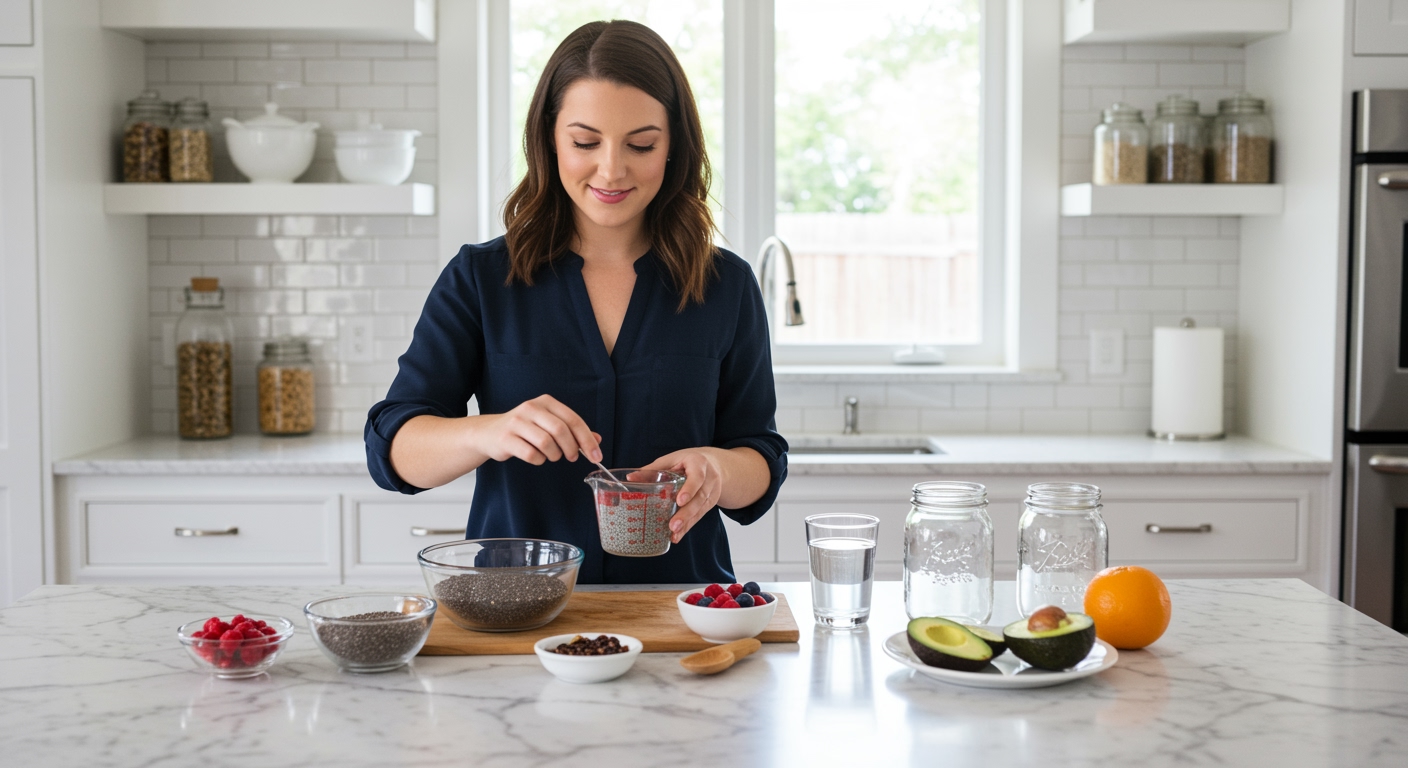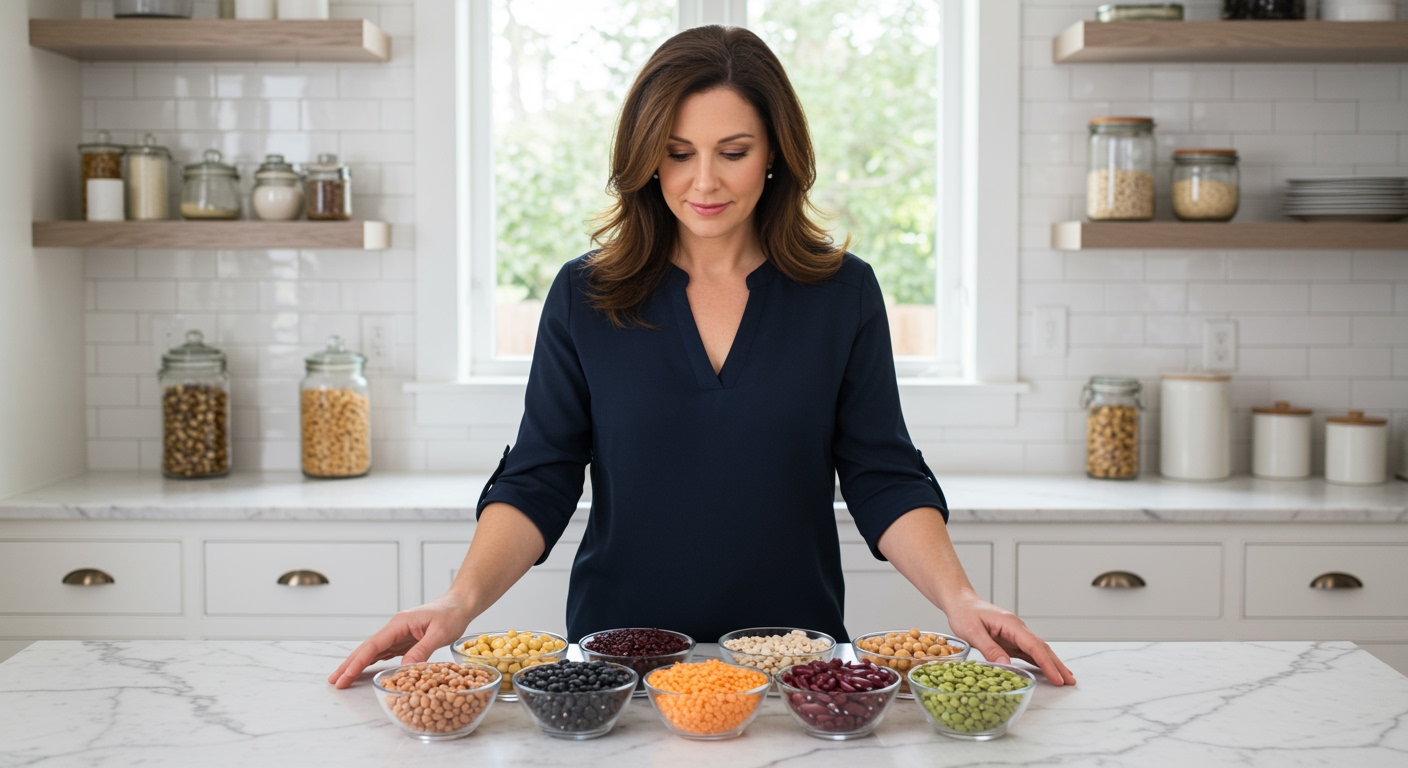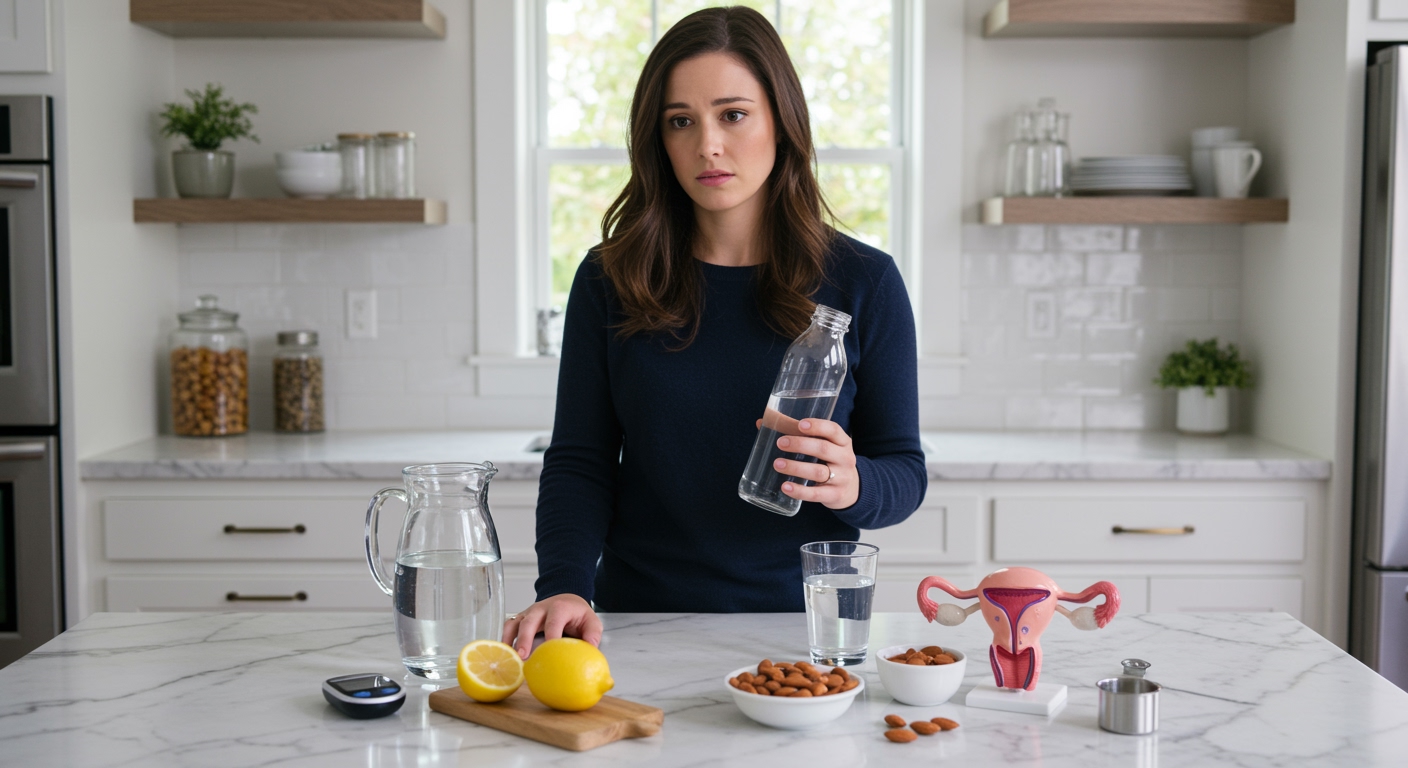✪ Key Takeaway: Chia seeds provide exceptional fiber content for PCOS, delivering 10 grams per ounce to support hormone balance and insulin sensitivity.
Introduction
You scroll through social media and see another post about chia seeds being the miracle solution for PCOS fiber needs.
You might be wondering if these tiny seeds can really make a difference in managing your PCOS symptoms through better fiber intake.
Hi, I’m Abdur, your nutrition coach and today I’m going to explain exactly how chia seeds can support your PCOS fiber requirements and whether they live up to the hype.
Why Does Fiber Matter So Much For PCOS?
Women with PCOS face unique challenges that make adequate fiber intake absolutely critical for symptom management.
Your body struggles with insulin resistance, which means glucose stays elevated in your bloodstream longer than it should.
Fiber slows down glucose absorption in your small intestine, preventing those dangerous blood sugar spikes that worsen PCOS symptoms.
Research shows that women with PCOS who consume 25-35 grams of fiber daily experience better hormone balance and reduced inflammation.
The gut microbiome also plays a crucial role in PCOS management, and fiber feeds the beneficial bacteria that produce short-chain fatty acids.
These fatty acids help reduce systemic inflammation and improve insulin sensitivity throughout your body.
✪ Fact: Women with PCOS typically consume 40% less fiber than the recommended daily amount, contributing to worsened symptoms.
How Much Fiber Do Chia Seeds Actually Provide?
One ounce of chia seeds contains an impressive 10 grams of fiber, which represents about 40% of your daily fiber needs.
This makes chia seeds one of the most fiber-dense foods available, surpassing many traditional high-fiber options like oats or beans.
The fiber in chia seeds consists of both soluble and insoluble types, with soluble fiber making up about 85% of the total content.
Soluble fiber forms a gel-like substance in your digestive tract, which slows nutrient absorption and helps stabilize blood sugar levels.
The mucilage in chia seeds is particularly beneficial because it creates a protective coating in your intestines that supports digestive health.
Just two tablespoons of chia seeds can provide nearly half of your daily fiber requirements, making them incredibly efficient for busy lifestyles.
✪ Pro Tip: Start with one tablespoon daily and gradually increase to prevent digestive discomfort while your gut adapts to higher fiber intake.
What Makes Chia Seeds Different From Other Fiber Sources?
Unlike many high-fiber foods that require cooking or extensive preparation, chia seeds can be consumed raw and added to virtually any meal.
They have a neutral taste that does not interfere with the flavors of your favorite foods, making them incredibly versatile for daily use.
When exposed to liquid, chia seeds absorb up to 12 times their weight in water, creating a satisfying gel texture that promotes fullness.
This unique property helps control appetite and prevents overeating, which is particularly beneficial for women with PCOS who struggle with weight management.
The seeds also provide complete protein with all nine essential amino acids, unlike most plant-based fiber sources that lack complete protein profiles.
Additionally, chia seeds contain omega-3 fatty acids that help reduce inflammation associated with PCOS, providing multiple therapeutic benefits in one small package.
✪ Note: Always drink plenty of water when consuming chia seeds to prevent digestive blockages and maximize their beneficial effects.
Are There Any Downsides To Using Chia Seeds For Fiber?
The biggest concern with chia seeds is their potential to cause digestive upset if you increase your intake too quickly or do not drink enough water.
Some people experience bloating, gas, or stomach cramps when they suddenly add large amounts of fiber to their diet without proper preparation.
Chia seeds can also interfere with medication absorption if taken at the same time, particularly blood thinners or diabetes medications.
The cost factor may be prohibitive for some people, as chia seeds are significantly more expensive than traditional fiber sources like oats or beans.
People with swallowing difficulties should exercise caution because dry chia seeds can expand in the throat and cause choking hazards.
Despite these concerns, most people can safely incorporate chia seeds into their diet with proper hydration and gradual introduction.
✪ Pro Tip: Soak chia seeds for 15 minutes before eating to reduce the risk of digestive issues and improve nutrient absorption.
How Should You Use Chia Seeds For Maximum PCOS Benefits?
Start with one tablespoon daily mixed into water, smoothies, or yogurt to allow your digestive system to adapt gradually.
The best time to consume chia seeds is before meals because the fiber helps slow glucose absorption and promotes satiety.
You can create chia puddings by mixing three tablespoons with one cup of liquid and letting it sit overnight in the refrigerator.
Adding chia seeds to protein smoothies creates a powerful combination that supports both blood sugar control and muscle maintenance.
For maximum benefit, aim for two tablespoons daily spread across different meals rather than consuming all at once.
Always drink at least 8 ounces of water with each serving to ensure proper hydration and prevent digestive complications.
✪ Fact: Consuming chia seeds with vitamin C-rich foods like berries enhances iron absorption and maximizes their nutritional benefits.
The Bottom Line
Chia seeds are absolutely worth incorporating into your PCOS management plan because they provide exceptional fiber content with additional therapeutic benefits.
Small changes in fiber intake create massive improvements in PCOS symptoms when done consistently over time.
I would love to hear about your experience with chia seeds or any questions you might have about using them for PCOS fiber needs in the comments below.
References
At NutritionCrown, we use quality and credible sources to ensure our content is accurate and trustworthy. Below are the sources referenced in writing this article:
- Harvard Health: Chia seed benefits: What you need to know
- Healthline: 11 Proven Health Benefits of Chia Seeds
- Cleveland Clinic: PCOS Diet: What to Eat and Avoid
- PMC: Dietary Fiber and PCOS





